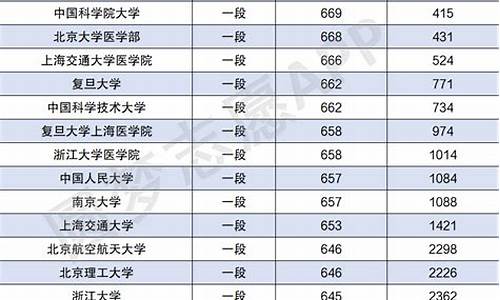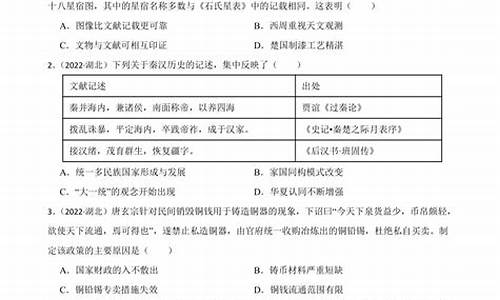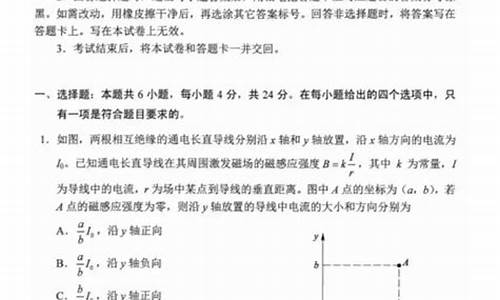2016英语高考真题答案,2016年高考英语卷子答案
1.谁有2016~2019全国卷高考英语真题,百度网盘的链接有没有呀~求哥哥姐姐们分享
2.2016年高考全国一卷英语语法填空的翻译
3.2016年高考全国卷英语难不难,全国卷英语难度系数答案点评解读
4.20163月18日贵阳高考英语听力题目1,2,3,4,5,6,7,8,9,10,11,12,13
5.跪求2016高考英语模拟试题五答案外研版
6.高考英语听力真题「全国I卷」

语法是语言的骨架,为了帮助考生们熟练掌握语法,下面我为大家搜索整理了关于 高考 英语语法填空真题(10篇),欢迎参考练习,希望对大家备考有所帮助!想了解更多相关信息请持续关注我们应届毕业生培训网!
Passage 1 (2015?新课标全国Ⅰ)
阅读下面材料,在空白处填入适当的内容(1个单词)或括号内单词的正确形式。
Yangshuo,China
It was raining lightly when I __1__ (arrive) in Yangshuo just before dawn.But I didn't care.A few hours __2__,I'd been at home in Hong Kong,with __3__ (it) choking smog.Here,the air was clean and fresh,even with the rain.
I'd skipped nearby Guilin,a dream place for tourists seeking the limestone mountain tops and dark waters of the Li River __4__ are pictured by artists in so many Chinese __5__ (painting).Instead,I'd headed straight for Yangshuo.For those who fly to Guilin,it's only an hour away __6__ car and offers all the scenery of the better-known city.
Yangshuo __7__ (be) really beautiful.A study of travelers __8__ (conduct) by the website TripAdvisor names Yangshuo as one of the top 10 destinations in the world.And the town is fast becoming a popular weekend destination for people in Asia.Abercrombie & Kent,a travel company in Hong Kong,says it __9__ (regular) arranges quick getaways here for people __10__ (live) in Shanghai and Hong Kong.
语篇导读
桂林山水甲天下,阳朔风光甲桂林。作者讲述了从香港去阳朔旅游时的所见。
1.解析:考查动词的时态。主句谓语动词使用了过去进行时,根据语境此处要用一般过去时态。
答案 arrived
2.解析:考查副词的用法。由语境可知,几个小时之前我还在香港的家中,由此可知before/earlier符合句意。
答案 before/earlier
3.解析:考查形容词性物主代词的用法。空格后面有名词smog,故要使用形容词性物主代词。
答案 its
4.解析:考查定语从句关系代词的用法。由句子结构不难判断这是一个定语从句。先行词为指物的mountain tops and dark waters,关系词在从句中作主语,因此答案为that/ which。
答案 that/ which
5.解析:考查名词的复数。?so many+复数名词?为一常用短语。
答案 paintings
6.解析:考查介词的固定用法。根据句意可知,这只是驱车一小时的路程。?by+交通工具名词?为一固定短语。
答案 by
7.解析:考查主谓一致和动词时态。本段介绍阳朔的自然条件,属客观事实,要用一般现在时,由于主语是单数第三人称形式,因此答案为is。
答案 is
8.解析:考查过去分词短语作后置定语的用法。study与conduct之间为动宾关系,故用表示被动的过去分词形式。此外,by是解题的关键词,conducted by...意为?由所做的?。
答案 conducted
9.解析:考查副词的用法。该词修饰谓语动词arrange,故要用其副词形式。
答案 regularly
10.解析:考查现在分词短语作后置定语的用法。由于live与其所修饰的名词people之间为逻辑上的主谓关系,故用表示主动意义的现在分词形式。
答案 living
Passage 2 (2015?新课标全国Ⅱ)
阅读下面材料,在空白处填入适当的内容(1个单词)或括号内单词的正确形式。
The adobe dwellings(土坯房)__1__(build) by the Pueblo Indians of the American Southwest are admired by even __2__ most modern of architects and engineers.In addition to their simple beauty,what makes the adobe dwellings admirable is their __3__(able) to ?air condition?a house without __4__(use)electric equipment.Walls made of adobe take in the heat from the sun on hot days and give out that heat __5__(slow)during cool nights,thus warming the house.When a new day breaks,the walls have given up their heat and are now cold enough __6__ (cool) the house during the hot day:__7__ the same time,they warm up again for the night.This cycle __8__ (go) day after day: The walls warm up during the day and cool off during the night and are thus always a timely offset(抵消)for the outside temperatures.As__9__(nature) architects,the Pueblo Indians figured out exactly__10__thick the adobe walls needed to be to make the cycle work on most days.
语篇导读
相比现代化的建筑,简陋的土坯房可谓丑陋不堪。但当代的 建筑师 却对其情有独钟。短文主要介绍了土坯房能够调节温度的原理。
1.解析:考查过去分词短语作后置定语。主语dwellings与动词build之间为逻辑上的动宾关系,故用过去分词形式。又由by一词的暗示也可知用表示被动意义的过去分词。
答案 built
2.解析:考查定冠词的用法。空格之后为形容词的最高级形式,故填定冠词。
答案 the
3.解析:考查形容词与名词的转换。形容词性物主代词their之后应当用名词,故将able转化为其名词形式。
答案 ability
4.解析:考查介词的用法。介词without之后的动词要用动名词形式。
答案 using
5.解析:考查副词的用法。由土坯制成的墙壁在炎热的白天吸收太阳的热量并在凉爽的夜间慢慢将热量释放出来。修饰谓语动词give out,因此要用副词形式。
答案 slowly
6.解析:考查固定句式的用法。?形容词+enough+动词不定式?为一常用句式。
答案 to cool
7.解析:考查固定短语的用法。at the same time意为?同时?,是一个常用介词短语。
答案 at
8.解析:考查动词的时态。这是一篇说明文,主要介绍了土坯房冬暖夏凉的原理,故用一般现在时态。
答案 goes
9.解析:考查形容词的用法。修饰名词architects,故要用形容词形式。
答案 natural
10.解析:考查宾语从句的连接词用法。分析句子结构可知,这是一个宾语从句。根据形容词thick及结构可知这里的意思是印第安人要算出土坯墙的确切厚度。所以答案为how。
答案 how
Passage 3 (2015?福建)
阅读下面短文,根据以下提示:1)汉语提示,2)首字母提示,3)语境提示,在每个空格内填入一个适当的英语单词,所填单词要求意义准确,拼写正确。
Sometimes we have disagreements with people.When this (1)h_____, the important thing is to try not to let a calm discussion turn into a heated argument.Here (2)_____ my tips for you.
The (3)f_____ thing I would say is that the way you begin the conversation is very important.
Imagine you are a student and you share a flat (4)_____ another student who you think isn't doing her share of the housework.If you say, ?Look, you never do your share of the housework.(5) _____ are you going to do about it, the discussion will very soon turn into an argument.It's much more (6)_____ (有帮助)to say something like, ?I think we had (7)b_____ have another look about how we divide up the housework.Maybe there is a better way of dealing with it.?
My second piece of (8)a_____ is simple.If you're the person who is in the wrong, just admit it! This is the easiest and best way to avoid an argument.Just make an (9)_____ (道歉), and move on.The other person will have more respect for you (10)_____ the future if you do that.
答案:
1.happens 2.are 3.first 4.with 5.What 6.helpful/beneficial 7.better 8.advice 9.apology 10.in
Passage 4 (2015?湖南)
Directions: Complete the following passage by filling in each blank with one word that best fits the context.
Research has become both simpler and more complex. It's simpler because, __1__ you have a computer, you can find information you need by searching the Internet. For all your information, you don't have to go to __2__ library to find the relevant resource and take notes on it. Instead, you can find some sources from the Internet __3__ print the copies needed.Remember, however, that you should usually consult different types of sources. That is, you __4__ always rely just on the Internet for your research.
While finding information is easier than ever, at the same time, researching has become __5__ complex. There is a lot more material available, which means you may be overwhelmed __6__ the amount of information. You need to learn __7__ to sort through and find the relevant information for your particular project. Also, __8__need to check the accuracy of it.
语篇导读
随着电脑和因特网的出现,研究变得既简单又复杂。一方面,我们不必像以往一样在书中搜索资料,这为我们提供了极大的方便;另一方面,网络中众多的资料良莠不齐,选择准确的信息使我们的工作变得愈加复杂。
1.解析:考查状语从句。根据句意,如果你有了电脑,你可以通过上网获得所需的信息。
答案 if
2.解析:考查冠词。go to the library去图书馆;in the library 在图书馆。
答案 the
3.解析:考查连词。and 连接并列谓语find和print。
答案 and
4.解析:考查情态动词。根据上文你应该(should)查阅不同的资料。
答案 shouldn't
5.解析:考查形容词比较级。参见上文第一句more complex。
答案 more
6.解析:考查介词。be overwhelmed with 面临,陷入。
答案 with
7.解析:考查疑问词。根据句意,你需要学习如何分类并找到特定任务的相关信息。how to do 是含有疑问词的不定式,在此处作宾语。
答案 how
8.解析:考查代词。参见上文You need to learn how to sort throug...
答案 you
谁有2016~2019全国卷高考英语真题,百度网盘的链接有没有呀~求哥哥姐姐们分享
2015年高考英语试题浙江卷严格依据《英语课程标
准》、《英语教学指导意见》和《考试大纲》命制,延续前几年试卷的风格,题型和要求没有改变,难度保持相对稳定。试卷对词汇的理解要求略有提高,出现了
unavoidable,stunned,humiliation等生词。从整卷的语言材料看,真实地道,关注思想性、人文性和实用性,比较通俗易懂。从
设题情况看,立足考查学生的语言基础知识和语用能力,无偏题和怪题。
单项选择题考点覆盖面广,考查内容清晰,难度适中。考题涉及词汇辩析、情境对话和语法知识。词汇辨析依然是单选题的重点,如形容词辩析、动词辩析、名词辩析等。许多题项考查考生的语用能力。
完形填空题讲述作者大学毕业后在工作和生活体验中理解了成功的真正含义,指出“物质上的成功和享受并不代表精神的富足和幸福”这一价值趋向。文章的最后
两句
(But what about the personal and social costs involved in pursuing money over meaning? These are exactly the kinds of costs many of us tend to ignore — and the very ones we need to consider most.)
道出了作者的观点,是理解本文的关键。考查难点主要是长句理解,逻辑关系和故事情节的流畅性。此题有一定的难度。
阅读理解题
选材广泛,涉及学习、图表、科普、生活等方面话题,有一定的生词量。其中A篇是关于学生快乐阅读的实验,强调通过快乐阅读培养阅读习惯。B篇通过对条形
图、线形图和饼形图的介绍,让学生学会读图,运用英语解决实际问题。C篇是光污染对生物的影响,集科普性和人文性于一体。D篇讲述作者从遛狗的体验中悟出
生活的哲理——尽管有时生活艰难、前途难测,但人生总有希望和快乐。任务型阅读是关于约见教授的注意事项,要求考生根据篇章内容和脉络,选出每段的首句,
考查学生概括主题和查找主题句的能力。阅读理解题的设问除了部分信息查询题外,更多的题项涉及主旨大意、推理判断、作者意图、句子理解、代词指代、篇章结
构等,对思维能力有一定的要求,难度适中。
改错题的语篇原文语言地道,根据改错要求,进行了题目设置,考查考生基本的阅读和综合知识的运用能力,错误典型,易于查找和改正。
书面表达题要求考生以“When I have a different opinion”为题,在“坚持自己观点并说服别人”和“尊重大多数同学的意
见”中选择其一,用实例阐述观点,并说明理由。该题符合学生认知发展水平和生活体验,学生有话可说,易于表达。但要写好这篇短文,考生需要一定的思辩能力
和语言表达能力。
从今年的英语试卷看,今后的高中英语教学应该继续关注语篇,重视语境,培养语感。同时,考生也要注重拓展阅读空间,强化生活体验,提高思辩能力。
2016年高考全国一卷英语语法填空的翻译
2016~2019全国卷高考英语真题
提取码:1234
K12教育致力于为小初高学生提供丰富的资料干货,涵盖各个学科。我们还提供2023高三生物邓康尧、2023版新高考版高考总复习语文、乐学-李政等相关课程。通过学习方法的培养,我们帮助学生提高学习效果和自主学习能力,为他们的学习之路提供全方位的支持。
2016年高考全国卷英语难不难,全国卷英语难度系数答案点评解读
In the l3th century, the famous Italian travcler, Marco Polo, traveled a long way to China. During his stay in China, he saw many wonderful things. Onc of the things he discovered was that the Chinesc used paper moncy. In western countries, people didn't use paper money untt c6ntury. However, pcople in China bcgan to usc paper moncy in the 7th.
13世纪,意大利著名的特拉夫勒马可波罗远道来到中国。在中国期间,他看到了许多精彩的事情。他发现的一件事是中国人用的是纸。在西方国家,人们不使用纸币。然而,中国的pcople在7日将bcgan提交给美国加州大学。
A Chinese man called Cai Lun invented paper almost 2000 ycars ago. Hc put these picccs of paper togcther and made them in a book.Now paper comes from trccs. We usc a lot of paper every day. If we keep on wasting so much paper, there will not be any trces left on the carth. If there are no trecs, there will be no paper. So how can we save paper?
一个叫蔡伦的中国人在2000年前发明了纸。Hc把这几张纸放在一起做成了书,现在纸张来自trccs。我们每天都有很多报纸。如果我们继续浪费这么多的纸,马车上就不会有任何东西了。如果没有树,就没有纸。那么我们怎样才能节省纸张呢?
can usc both of cvery picce of paper, cspccially when we are making notes. We can choose drinks in bottles instead of those in paper packets(包). We can also use handkerchic乖帕) and not paper oncs.
当我们做笔记时,能同时使用两张纸吗。我们可以选择瓶装饮料,而不是纸袋饮料(包)。我们也可以用手帕而不是纸。
When we go shopping, we can usc fewer paper bags. If the shop assistant docs give you a paper bag, we can save it and rcuse it later.Everyonc can help to save paper. If we all think carcfully, we can help protcct trccs. We should do it now,before it is too latc.
当我们去购物时,我们可以少买些纸袋。如果售货员给你一个纸袋,我们可以把它存起来,再用以后,每个人有助于节省纸张。如果我们都认真思考,我们就能帮助。我们应该现在就做,免得太晚了。
扩展资料这部分内容主要考察的是宾语的知识点:
直接宾语作为谓语动词的承受者,间接宾语表示谓语动作的方向(对谁做)或动作的目标(为谁做),间接宾语紧接在谓语动词后,但它不能单独存在。
由直接宾语和间接宾语组成。直接宾语是谓语动词的承受者,间接宾语表示谓语动作的方向(对谁做)或动作的目标(为谁做),间接宾语紧接在谓语动词后,但它在句子中不能单独存在,并且能和直接宾语组成双宾语。
直接宾语可由名词、代词、数词、不定式充当。间接宾语是指动词的行为所指向的人。间接宾语由名 词或宾格代词充当。间接宾语一般放在直接宾语之前,但有时当直接宾语比间接宾语短得多时,或当我们 特别强调间接宾语时。
20163月18日贵阳高考英语听力题目1,2,3,4,5,6,7,8,9,10,11,12,13
望采纳
“今年的试卷(Ⅰ)与前两年的试卷相比不偏、不怪。试卷难易适中,考点分布全面,梯度把握较好,遵循了英语考试说明,符合课程标准的要求。”2016年全国高考英语项结束后,山西太原的几位英语老师不约而同的表示。
山西省实验中学 王秀萍
“今年的试卷侧重对学生综合能力的考查,较好地体现了《教学大纲》和《考试大纲》的要求。对中学英语教学具有一定的指导作用。”王秀萍老师说。
阅读理解注重考查了学生综合运用所学语言知识的能力,重点考查了学生的阅读能力,理解能力,归纳概括能力,逻辑推理能力等。
从题材、体裁看,A篇为应用文,简要介绍四位杰出女性的社会贡献;B篇为社会生活说明文,介绍了美国老年人开始照顾下一代的潮流;C篇为记叙文,通过自述的形式介绍了运送造血干细胞志愿者的经历;D篇为说明文,介绍了“沉默”在不同文化背景中的含义;七选五为一篇介绍网络加密的说明文。
从题型来看,主旨大意1题(35); 推理判断1题(24);猜词1题(29); 细节12题( 21,22,23,25,26,27,28,30,31,32,33,34)。
从能力考查来看,整体上偏重对文章事实细节的考查。重点考查学生对文本信息的理解以及对选项句意的理解。其中,主要体现在选项的命制上,除采用同义句、近义句的形式,部分选项还采用了归纳概括的方式,注重考查学生对语言形式和意义的理解。
完形填空主要考查学生结合文意,对词语用法的掌握情况。整体难度适中。试题为一篇记叙文。讲述了见义勇为的司机Larry及时扑灭出事汽车大火的事迹。
语篇填空考查学生在具体篇章或对话中,识别语法现象和运用语言知识的能力。其中65题,需要考生通过阅读文章,把握文章内在逻辑才可以完成。其他小题从每句话中都较容易判断并完成。
短文改错试题覆盖了学生的知识重点和易错点。其中, 对学生把握英文句子结构作了重点考查。考点涉及冠词、代词指代一致、动词时态一致、被动语态、宾语从句连接词、状语从句连词、并列连词、介词、词性变化以及形容词、副词转化的问题。其中将honest( adj. ) 改为honesty (n.) 是学生的难点。
书面表达与以往试题类似,立足学生生活实际,要求写一封信,请外教帮忙修改申请信和简历的文字及格式。内容贴近学生生活实际,难度适中,题目要求清晰、明确。学生容易上手,不容易跑题、偏题。难度在于如何添加有效信息,使文章内容充实、用词得体,交际有效。
“综上所述,2016年全国课标卷I突出了在语言运用方面的考查。不难发现,阅读能力仍然是高考试卷中考查的重点。同时注重在语境中考查学生对词语的掌握能力和理解能力。阅读能力的形成和提高需要扎实的语言基础知识。对于2017年的考生而言, 注重基础知识的掌握和对于语言知识的实际运用是高考取得好成绩的保证。同时,考生应该加强时文阅读训练,选择内容新、语言新的语料,在语言实践中提高自身的语言素养,掌握英语语言的规律,以提高语言实际运用能力。”
山大附中 杨秀峰
老师表示:“今年的试卷不仅注重考查学生对英语语言基础知识的掌握和理解程度,而且强化了考生在特定语言环境中综合运用语言知识的能力。同时考卷渗透了时代气息和人文思想,传播了正能量。”
听力部分选材多是学生熟悉的日常交际场景,基本没有生僻词语,语速适中,考生们可以借助播放听力前的时间,通过读题猜测文章可能所涉及的内容,有助于直接找到考点。侧重考查考生在规定时间内对听到的语料的反应能力和理解能力。但是因为不计入总分只作高校录取时的参考,所以很多考生不太重视。
阅读理解主要考查学生获取信息的能力、预测推断的能力和分析概括的能力。考生不仅要能正确理解文章的表层意思,还要能通过表层意思去合理推断、挖掘文章的隐含意义。这是对考生知识储备和心理素质的综合检测。今年全国Ⅰ卷秉承了多年来的一贯特点:
体裁多样
阅读理解的选材通常有记叙文(C 篇)、说明文(D 篇和七选五)和议论文(B 篇);同时应用文(A 篇类似于应用文)的选材也比较常见。
题材丰富
阅读理解注重题材的多样化、现代化和生活化。选材多源于国外的英文图书、报刊、网络媒体,语言地道纯正,具有鲜明的英语语言文化特点。常见的题材有广告信息类(A篇)、社会现象类(B篇)、逸闻趣事类(C篇)、政经文化类(D篇)、科普知识类(七选五)、健康环保类、人物传记类、历史地理类、教育科技类、新闻报道类和日常生活类等等。
题型稳定
高考阅读理解的题型一直比较稳定,通常有四大类:事实细节题为主(直接信息理解题21、23、26、30、31、33、34;间接信息转化题22、25、27、32);主旨题(35);推断题(24、28);释义题(29)。
七选五介绍了密码技术相关的知识,考查学生的逻辑思维能力,但总体难度不大,学生通过抓住关键词、分析语段的结构、意思的顺延等基本上能定位答案。
句子结构复杂
虽然相对于前两年今年高考阅读理解在词汇运用和句子结构方面难度有所下降,但仍然可以看到一些长难的句子影响到考生对文章意义的理解。如B篇中句子 “In the 1960s we were all a little wild and couldn’t get away from home far enough or fast enough to prove we could do it on our own,” 如果考生对于固定的结构“...can’t ...enough to do...(再......也不过分)”不理解肯定会将27题答案选错。
完形填空主要考察学生对语篇的理解能力、使用词汇和运用语法知识的能力。做这种题型时考生不能孤立地解决每一个问题,因为完形填空中的每一处空白在内容上都与上下文密切相关。一处空白的失误有时会导致对通篇文章的错误理解。今年的完形填空的体裁为记叙文,讲述的是一位司机路上遇到发生事故的车辆并且英勇施救的故事。大多数考生都认为难度不太大,比较容易得分。词语方面考查的重点仍然是实词为主,其中7个动词或动词短语,4个名词,3个形容词,1个副词,1个代词,3个连词,1个介词短语。要求考生要有相应的词语辨析、句法结构、逻辑推理,归纳概括、语篇理解、情景运用和文化、生活常识方面的能力。如41题:对于“travel”用作“前行,移动”这个意思学生不是很熟悉,很容易勿选touring;42题:如果不能明辨“passengers”和“customers”的差异,肯定会选错答案;又如44和45题:如果不联系上下、如果没有基本的生活常识就不可能选择“another”和“flames”。
短文改错语言明白易懂,基本不会涉及生僻的语言现象和繁杂的语言结构,内容和难度略低于学生的写作水平。从词法、句法、语篇结构考查学生能力。今年的考题涉及到词法相关的有名词和形容词之间的转换honest改为honesty、动词短语dream of、冠词a的添加、副词steadily搭配动词;句法相关的有名词性从句中that改成where、被动语态的使用are used、;语篇结构相关的有上下文中平行结构的把握连词but 的删减、or改成and、上下文时态一致had 改为have、代词指代要明确our改成his。
书面表达继承前两年的风格:依然是可以应用英语的场景、依然是书信体,依然是半开放的作文。试题内容为给外教写信,请她修改你附的申请书和个人简历。有助于考生发挥自己的想象空间、展示个人能力。考生有话可说,较好把握,但对表达的流利性和顺畅性要求较高
跪求2016高考英语模拟试题五答案外研版
这道题不能用正常的思路做。
题目中给的1,3,5,7,9,11,13,15都是奇数,
而要使得三个奇数相加等于一个偶数(30)是不可能的。
因为两个奇数相加会变成偶数,而偶数再加一个奇数还会是奇数。
这道题中的数字,其实不是10进制的数字。
所谓10进制,就是当个位的数字超过9后,会给十位上加1。
这道题换成其他进制做就很容易了。
我们将这些数字看做9进制,得数的30(换算成10进制就是27)
将9进制换算成10进制的方法:
具体换算方法就是“十位:3*9+个位:0*1=27”
类似的,题目中的3,换算后就是“3*1=3”
题目中的11,换算后就是“1*9+1*1=10”
题目中的15,换算后就是“1*9+5*1=14”
换算后的10进制刚好满足等式。
所以答案为:3+11+15=30。
这道题的答案不唯一,还可以换成其他的进制,同时同一进制中也有不同的组合。
高考英语听力真题「全国I卷」
written exercises书面练习
A Rewrite these sentences.
模仿例句将以下祈使句改写成带有动词不定式的陈述句:
Example:
Please repair it. I want you to repair it.
1 Please spell it.
2 Please telephone him.
3 Please wear it.
4 Please ask her.
5 Please tell them.
6 Please help us.
B Write questions and answers.
模仿例句改写以下句子。
Example:
Type it again!
What do you want me to do? I want you to type it again.
1 Carry it!
2 Correct it!
3 Listen to it!
4 Describe it!
5 Move it!
6 Try it!
7 Finish it!
8 Keep it!
C Rewrite these sentences.
模仿例句改写以下句子,注意不定式的否定形式。
Example:
Don't type it again! (He/her)
He is telling her not to type it again. He doesn't want her to type it again.
1 Don't hurt yourself! (She/him)
2 Don't slip! (She/him)
3 Don't fall! (She/him)
4 Don't miss it! (She/them)
5 Don't break it! (She/him)
6 Don't drive it!(He/her)
D Answer these questions.
模仿例句回答以下问题。
Example:
Why is he speaking to her? (type it again) Because he doesn't want her to type it again.
1 Why is she speaking to him? (hurt himself)
2 Why is she speaking to him? (slip)
3 Why is she speaking to him? (fall)
4 Why is she speaking to them? (miss it)
5 Why is she speaking to him? (break it)
6 Why is he speaking to her? (drive it)
答案:
Lesson 106
A
1 I want you to spell it.
2 I want you to telephone him.
3 I want you to wear it.
4 I want you to ask her.
5 I want you to tell them.
6 I want you to help us.
B
1 What do you want me to do? I want you to carry it.
2 What do you want me to do? I want you to correct it.
3 What do you want me to do? I want you to listen to it.
4 What do you want me to do? I want you to describe it.
5 What do you want me to do? I want you to move it.
6 What do you want me to do? I want you to try it.
7 What do you want me to do? I want you to finish it.
8 What do you want me to do? I want you to keep it.
C
1 She is telling him not to hurt himself. She doesn't want him to hurt himself.
2 She is telling him not to slip. She doesn't want him to slip.
3 She is telling him not to fall. She doesn't want him to fall.
4 She is telling them not to miss it. She doesn't want them to miss it.
5 She is telling him not to break it. She doesn't want him to break it.
6 He is telling her not to drive it. He doesn't want her to drive it.
D
1 Because she doesn't want him to hurt himself.
2 Because she doesn't want him to slip.
3 Because she doesn't want him to fall.
4 Because she doesn't want them to miss it.
5 Because she doesn't want him to break it.
6 Because he doesn't want her to drive it.
第一部分 听力(共两节,满分30分)
做题时,先将答案标在试卷上。录音内容结束后,你将有两分钟的时间将试卷上的答案转涂到答题卡上。
第一节(共5小题;每小题1.5分,满分7.5分)
听下面5段对话。每段对话后有一个小题,从题中所给的A、B、C三个选项中选出最佳选项,并标在试卷的'相应位置。听完每段对话后,你都有10称钟的时间来回答有关小题如阅读下一小题。每段对话仅读一遍。
例:How much is the shirt?
A. £19.15. B. £9.18. C. £9.15.
答案是 C。
1. What does the woman want to do?
A. Find a place. B. Buy a map. C. Get an address.
2. What will the man do for the woman?
A. Repair her car.
B. Give her a ride..
C. Pick up her aunt.
3. Who might Mr. Peterson be?
A. A new professor.
B. A department head.
C. A company director.
4. What does the man think of the book?
A. Quite difficult..
B. Very interesting.
C. Too simple.
5. What are the speakers talking about?
A. Weather.
B. Clothes.
C. News.
第二节(共15小题;每小题1.5分,满分22.5分)
听下面5段对话或独白。每段对话或独白后有几个小题,从题中所给的A、B、C三个选项
中选出最佳选项,并标在试卷的相应位置。听每段对话或独白前,你将有时间阅读各个小题,每
小题5秒钟;听完后,各小题将给出5秒钟的作答时间。每段对话或独白读两遍。
听第6段材料,回答第6至7题。
6. Why is Harry unwilling to join the woman?
A. He has a pain in his knee.. B. He wants to watch TV. C. He is too lazy.
7. What will the woman probably do next?
A. Stay at home. B. Take Harry to hospital. C. Do some exercise.
听第7段材料,回答第8 、9题。
8. When will the man be home from work?
A. At 5:45. B. At 6:15. C. At 6:50.
9. Where will the speakers go ?'
A. The Green House Cinema. B. The New State Cinema . C. The UME Cinema.
听第 8段材料,回答第 10至 12题。
10. How will the speaker go to New York?
A. By air. B. By taxi. C. By bus.
11. Why are the speakers making the trip?
A. For business.
B. For shopping.
C. For holiday.
12. What is the probable relationship between the speakers?
A. Driver and passenger
B. Husband and wife.
C. Fellow workers.
听第 9段材料,回答第 13至 16题。
13. Where does this conversation probably take place?
A. In a restaurant. B. In an office. C. In a classroom.
14. What does John do now?
A. He?s a trainer. B. He?s a tour guide. C. He?s a college student.
15. How much can a new person earn for the first year?
A. $10,500. B. $ 12,000. C. $ 15,000.
16. How many people will the woman hire?
A. Four. B. Three. C. Two.
听第10段材料,回答第17至20题。
17. How long has the speaker lived in a big city?
A. One year.
B. Ten years.
C. Eighteen years.
18. What is the speaker?s opinion on public transport?
A. It?s comfortable. B. It?s time-saving. C. It?s cheap.
19. What is good about living in a small town?
A. It?s safer. B. It?s healthier. C. It?s more convenient.
20. What kind of life does the speaker seem to like most?
A. Busy. B. Colourful C. Quiet.
参考答案:
1-5 ABCBA 6-10 BCACA 11-15 ACBCA 16-20CBCAB
声明:本站所有文章资源内容,如无特殊说明或标注,均为采集网络资源。如若本站内容侵犯了原著者的合法权益,可联系本站删除。












